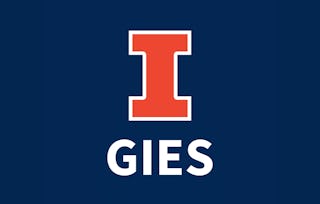This course focuses on examining various practical applications of the fundamental financial analysis and valuation techniques employed in the investment banking industry. Specifically, we will examine how to analyze how a private equity firm or other financial sponsor completes a leveraged buyout of a company, how a public company analyzes the impact of acquiring a company on its earnings per share, and how a company completes an initial public offering.

Investment Banking: M&A and Initial Public Offerings

Investment Banking: M&A and Initial Public Offerings
This course is part of Mergers and Acquisitions Specialization


Instructors: Robert Metzger
12,722 already enrolled
Included with
(94 reviews)
What you'll learn
Prepare a leveraged buyout (LBO) analysis.
Analyze whether an M&A transaction is accretive or dilutive to the earnings per share of a corporate acquirer.
Analyze motivations and valuations for mergers and acquisitions.
Determine the valuation and approach for executing an initial public offering.
Skills you'll gain
Details to know

Add to your LinkedIn profile
20 assignments
See how employees at top companies are mastering in-demand skills

Build your subject-matter expertise
- Learn new concepts from industry experts
- Gain a foundational understanding of a subject or tool
- Develop job-relevant skills with hands-on projects
- Earn a shareable career certificate

There are 5 modules in this course
This module begins with describing the different types of M&A projects and roles investment banks play in them. It then moves on to the motivations and strategies which drive M&A transactions, the different approaches to selling a business, and the process steps to running a sell-side auction process. Finally, the module explores how buyers finance, structure, and analyze M&A transactions.
What's included
19 videos6 readings6 assignments1 discussion prompt1 plugin
Most of the M&A deals that take place in today’s market are completed by private equity firms. The vast majority of these transactions are classified as “leveraged buyouts (LBOs)”, as the consideration is a mix of equity and debt (leverage). This module will explore how a private equity firm determines the price that it can pay for a specific target company in an LBO transaction given an assumed return threshold, financial forecast and capital structure.
What's included
2 videos2 readings3 assignments
When a corporation acquires a business, in addition to assessing the target’s standalone valuation, it will also assess whether the completion of the transaction will have a positive impact on its prospective earnings per share (EPS). This module will explore how an acquirer analyzes whether the acquisition has an accretive (positive) or dilutive (negative) impact on its EPS, given assumptions of the target’s valuation, expected transaction synergies, a proposed financing structure, and the impact of both financial and accounting transaction adjustments. This module will also demonstrate how to prepare a pro forma balance sheet for the buyer given the specifics of the M&A transaction.
What's included
5 videos2 readings6 assignments
Owners of businesses sometimes decide to take their business public as an alternative to an outright sale. This model explores the similarities between selling and an IPO as well as the differences. This module will define commonly used IPO terms and discuss the IPO process on a stage by stage basis. Finally, this module will highlight the key IPO valuation considerations and end with discussing what happens after a company is public.
What's included
11 videos3 readings5 assignments1 peer review
What's included
1 video2 readings1 plugin
Earn a career certificate
Add this credential to your LinkedIn profile, resume, or CV. Share it on social media and in your performance review.
Build toward a degree
This course is part of the following degree program(s) offered by University of Illinois Urbana-Champaign. If you are admitted and enroll, your completed coursework may count toward your degree learning and your progress can transfer with you.¹
Instructors


Offered by
Explore more from Finance
 Status: Free Trial
Status: Free TrialUniversity of Illinois Urbana-Champaign
 Status: Preview
Status: Preview Status: Free Trial
Status: Free TrialUniversity of Illinois Urbana-Champaign
 Status: Free Trial
Status: Free Trial
Why people choose Coursera for their career

Felipe M.

Jennifer J.

Larry W.

Chaitanya A.
Learner reviews
- 5 stars
81.91%
- 4 stars
12.76%
- 3 stars
3.19%
- 2 stars
1.06%
- 1 star
1.06%
Showing 3 of 94
Reviewed on Sep 11, 2022
Anyone who is interested in M&A, investment banking, or IPOs should take this course.

Open new doors with Coursera Plus
Unlimited access to 10,000+ world-class courses, hands-on projects, and job-ready certificate programs - all included in your subscription
Advance your career with an online degree
Earn a degree from world-class universities - 100% online
Join over 3,400 global companies that choose Coursera for Business
Upskill your employees to excel in the digital economy
Frequently asked questions
Once you enroll for a Certificate, you’ll have access to all videos, quizzes, and programming assignments (if applicable). If you choose to explore the course without purchasing, you may not be able to access certain assignments.
You will be eligible for a full refund until 2 weeks after your payment date. You cannot receive a refund once you’ve earned a Course Certificate, even if you complete the course within the 2-week refund period. View our full refund policy.
Yes! Coursera provides financial aid to learners who would like to complete a course but cannot afford the course fee. To apply for aid, select "Learn more and apply" in the Financial Aid section below the "Enroll" button. You'll be prompted to complete a simple application; no other paperwork is required.
More questions
Financial aid available,

